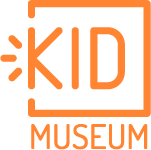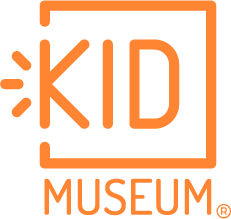Schedule a virtual field trip this semester to KID Museum — and let your students experience live, facilitated maker learning at its best!
KID Museum virtual field trips are uniquely designed to spark curiosity and cultivate the “mind of a maker” in learners of all ages. We offer many different virtual field trip options, to complement a wide variety of classroom lessons for 1st through 8th graders. Regardless of the topic, our programs encourage students to think deeply, share ideas, take risks, and solve problems together.
Choose among field trips on the engineering design process, coding, sustainable building design, and more. All programs are facilitated by professional maker educators and feature a low instructor-student ratio to engage students and promote interactive learning.
All virtual field trip requests must go through our online request form. Once you have submitted the form, you will receive a response within three business days.

